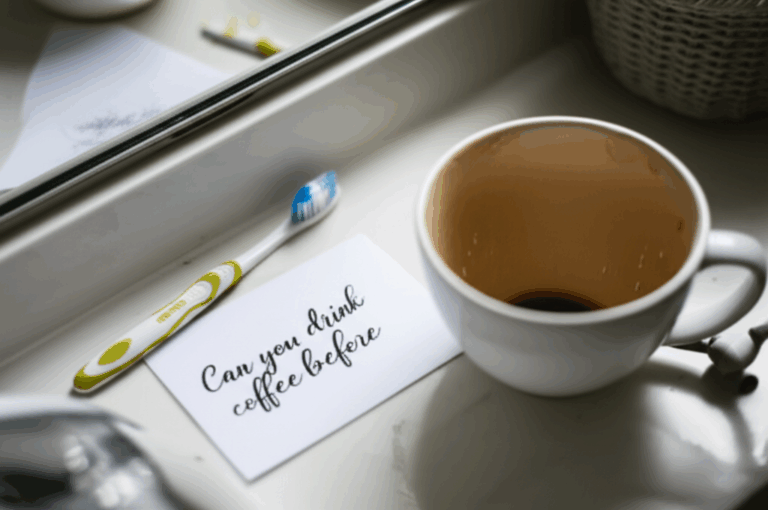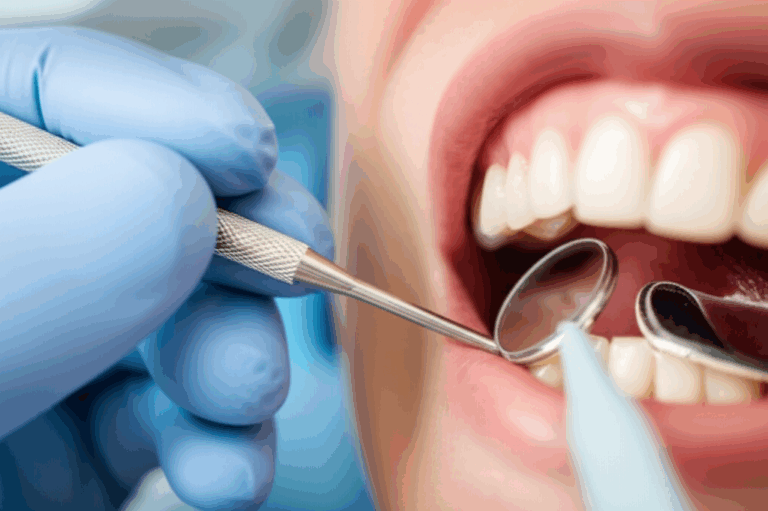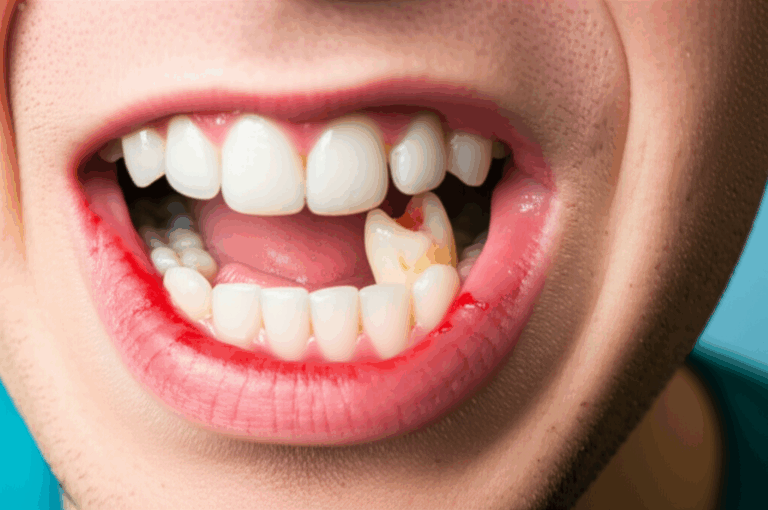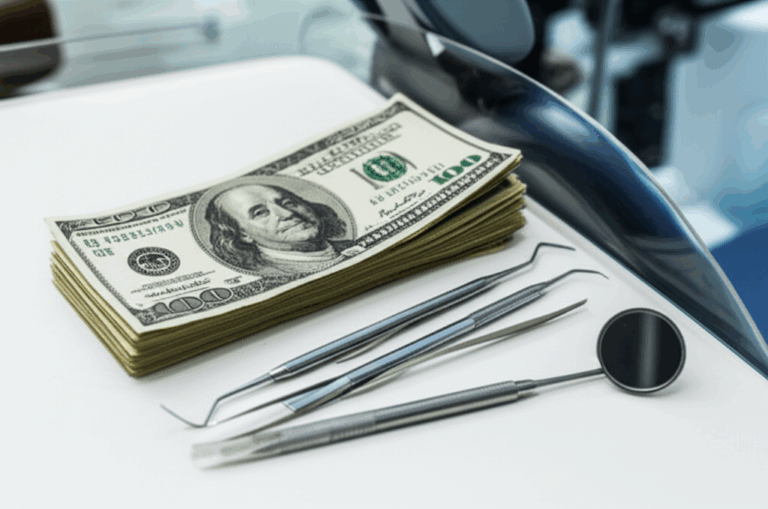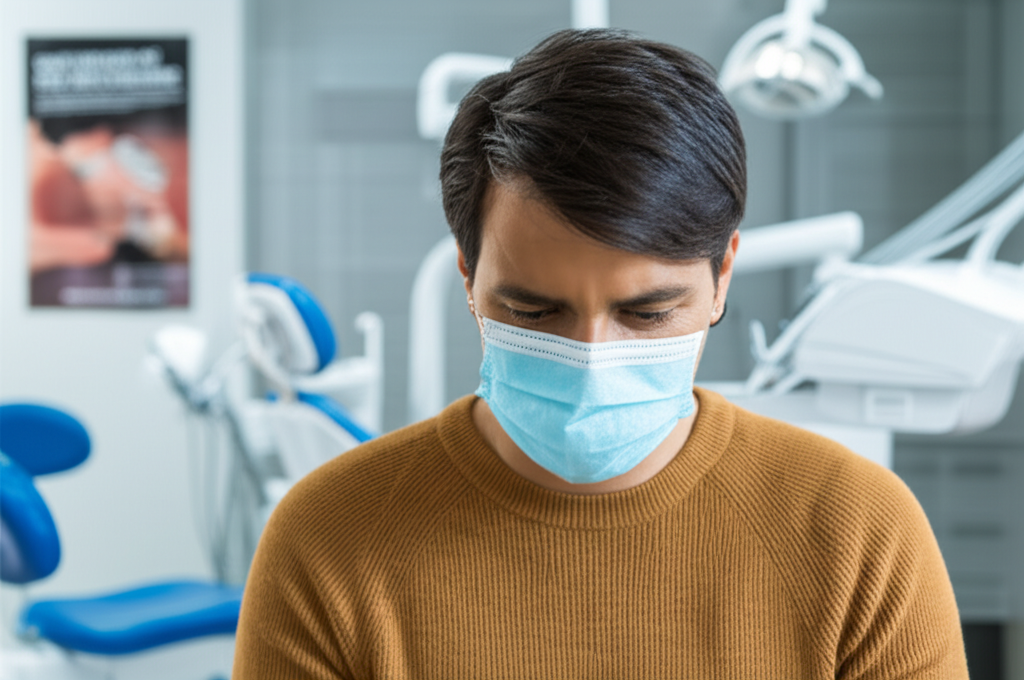
Can You Go to the Dentist with a Cough? Important Guidelines for Your Next Appointment
Are you wondering if you should still go to the dentist when you have a cough? You’re not alone! Many people worry about spreading germs or feeling uncomfortable during their dental visit if they’re not feeling well. This article answers your biggest questions about coughing and dental appointments. It shows you the risks, what your dental office wants you to do, and some tips on what to do if you really need to go to the dentist. Read on to make the best choice for your health and your community!
Table of Contents
The Short Answer: When to Reschedule and Why
Here’s the big question: Should you go to the dentist if you have a cough? Most of the time, the answer is simple—if your cough is because you’re sick or you feel bad, push your appointment to another day.
Why is that? First, a cough usually means you might pass germs to others. Germs like the flu, COVID-19, or just a regular cold can move around quickly in a dental office. The dentist’s office wants to keep everyone safe—even the staff and other patients. If you don’t know if you should go or not, just call the dental office and tell them your symptoms. They can help you decide.
Why Is Coughing a Problem at the Dentist?
Risk of Spreading Germs
A dental appointment isn’t just about your teeth—it’s about keeping everyone healthy. Coughing squirts little germs called droplets into the air, especially in the small rooms at the dentist. Dental tools like drills and cleaners can also make even more tiny sprays, which float in the air even longer. This can help spread sickness like COVID-19, the flu, or a cold much more easily.
Dentists and dental helpers wear masks and other gear, but your germs can still get to others. Some patients in the waiting room might be older or already not too healthy. You really don’t want to get someone else sick by accident.
Table: How Coughs Can Spread Germs in a Dental Office
| Germ Type | Travels By | Common Risks |
|---|---|---|
| Covid-19 | Droplets & aerosols | High |
| Flu | Droplets & aerosols | High |
| Common Cold | Droplets | Moderate |
References: Centers for Disease Control and Prevention (CDC), World Health Organization (WHO)
Treatment Discomfort & Compromise
A cough also makes the dental visit harder for you and for your dentist. Imagine laying back and trying not to cough, or keeping your mouth wide open when you feel a tickle in your throat. Not fun! Coughing can also make you gag or make it hurt to swallow and even make it harder to breathe.
Dentists need you to sit still so they can do their job well. If you’re coughing or moving, it gets harder to fix teeth, take X-rays, or clean your mouth. Everyone gets frustrated and the results may not be as good.
Are All Coughs the Same?
Non-Contagious Coughs
Not all coughs are the same. Sometimes a cough is caused by things that aren’t catching—you can’t make other people sick. For example:
- Allergies (like pollen or dust)
- Asthma or other lung problems
- GERD (heartburn)
- Post-nasal drip after a cold, but you feel fine otherwise
- Cough that’s left over after you were sick but now have no fever
If your cough is because of these, you might be fine to keep your visit. Still, call ahead and tell your dental office. They might ask more questions or take extra steps to keep everyone safe.
Ask Yourself Key Questions
Ask yourself:
- Is your cough new or getting worse?
- Do you have a sore throat, fever, chills, sore muscles, or runny nose?
- Have you been with anyone who’s been sick lately?
- Did your cough come after you had a cold or the flu?
- Do you cough more when you lie down?
If you say “yes” to any of these, or aren’t sure, it’s smart to call your dentist and talk it over. They are there to help you decide.
What to Do If You Have a Cough Before Your Appointment
It can feel annoying when you need dental care but you’re sick. Here’s what you should do:
1. Don’t Wait—Call Your Dental Office Soon
If you wake up coughing, or feel sick before your dental visit, call the office as soon as you can. The earlier you let them know, the easier it is to make other plans.
2. Know Their Policy
Most dental offices have rules about canceling, but they are much nicer about sickness now. They may ask you how long you’ve been sick or when your fever went away. Changing your appointment helps keep others safe—and most offices are glad you’re honest.
3. Try a Virtual Visit for Small Problems
Some dental offices now have teledentistry (care over video or phone). This is good if your problem isn’t urgent and you just need advice. You can show your dentist a sore spot, talk about pain, or check if waiting is okay—all from home.
When Is It Okay to Go?
Sometimes you really don’t want to wait for your dental appointment, like if you have a toothache, a lost filling, or a broken tooth. But, you really should only go if:
If you do go, let your dental office know your full health story. Wear a mask, clean your hands, and do what they ask to keep everyone safe.
Reference: American Dental Association (ADA), CDC
Dental Emergencies: Is There an Exception?
Sometimes you can’t wait. If you have:
- Severe tooth pain
- Swelling in your mouth or face
- Bleeding that won’t stop
- A knocked-out tooth
- A really bad infection
You might need to see a dentist, even if you have a cough. First, call your dentist and tell them about your cough and any other feelings. Offices have special steps for emergencies:
- The staff will wear more protective gear like N95 masks and face shields
- You might enter through a different door
- They might see you at the end of the day when there are less people
The main thing is to keep you cared for while keeping others safe.
What Safety Measures Does a Dental Office Use?
Dental offices know a lot about staying healthy these days. Here’s what you can look for:
- Offices often call or text before to ask how you’re feeling or if you were around anyone sick.
- You may fill out a health form before you go in.
- Cleaning the rooms and tools a lot more than before.
- HEPA air filters and better air flow in the room.
- Waiting longer between patients to clean and let fresh air in.
- Dentists and helpers wear masks (sometimes N95 or KN95), gowns, gloves, and shields.
- You may need to use hand sanitizer and wear your mask until the dentist is ready to look in your mouth.
- Don’t go if you feel sick.
- Do whatever the staff ask.
- Tell them right away if you start to feel sick while you’re there.
How Can Dental Labs Help When You’re Sick?
If you can’t visit your dentist, but need help with things like dentures, bite guards, or broken teeth, a dental lab might help! Many labs team up with dental offices to make or fix mouth pieces.
For example, a dental ceramics lab can help make crowns, bridges, or veneers just for you. This means your dentist can sometimes help from far away and fit things once you feel better. Digital dental labs use cool new tools for quicker work.
Other labs, like removable denture labs, make dentures, while a crown and bridge lab makes strong, nice looking crowns. Working with these labs lets your dentist still take care of your teeth, even if you’re getting over being sick.
Caring for Your Mouth at Home While You’re Sick
If you have to push your appointment back, that’s okay. You can do a lot for your teeth at home:
- Brush and floss, even if you don’t feel good
- Rinse your mouth with warm salt water to help a sore throat or gums
- Drink lots of water, especially if you have a fever
- If you have mouth pain, don’t eat really hot, cold, or sweet things
- Chew sugar-free gum or use lozenges if your mouth is dry
If you need more help, your dentist can tell you about simple medicines or home care.
Conclusion: Your Health Comes First
No one likes to put off dentist visits, but when you have a cough, your health—and the health of others—comes first. Dental offices have tough cleaning rules for a reason. By being honest about how you feel and rescheduling when you should, you keep yourself, your dentist, and other people safe.
If you don’t know if you should cancel, call and ask. Most offices want to help you make the best choice.
Frequently Asked Questions
Q: What if my cough is just leftover after being sick?
A: If you don’t have a fever and no other symptoms, but still cough a little, call your dental office. They’ll let you know if you can come or if it’s better to wait.
Q: Will I be charged if I cancel because I’m sick?
A: Most dental offices know people get sick. If you call soon, they usually won’t charge you, especially during cold and flu season.
Q: Can I get my teeth cleaned if I have allergies but no sickness?
A: Sometimes yes! If your dentist thinks your cough isn’t from an infection, you might be able to come.
Q: What if I get sick while at my dental appointment?
A: Tell the dentist or helpers right away. They will stop the treatment so you can go home safe.
Q: Are there ways to get dental care without going in person?
A: Yes, many offices now let you have a video or phone visit for small problems. This is a good choice if you feel too sick to visit.
Key Points to Remember
- Call your dentist if you have a cough—and move your appointment if you feel sick.
- Coughs can spread sickness, especially at the dentist.
- Being honest keeps you and others safe.
- Some coughs (like from allergies or asthma) may not be catching—but always check first.
- Don’t ignore dental emergencies, even if you’re sick—just tell the dental office ahead of time.
- Strong cleaning and good dental labs keep care safe, even if you have to wait.
- Take care of your teeth at home if you can’t get to the dentist yet.
If you want more tips on caring for your mouth when you’re not feeling well, check out this practical guide or reach out to your local dentist. Your health—and your smile—are important!

